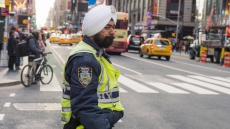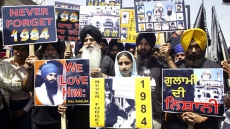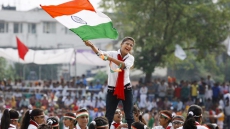An India-born academician at the prestigious Massachusetts Institute of Technology (MIT) has been named as the dean of its engineering school.
Anantha Chandrakasan, the Vannevar Bush Professor and head of the Department of Electrical Engineering and Computer Science (EECS) was last month named the dean of the MIT's School of Engineering.
He assumed his new role effective July 1. Chandrakasan succeeded Ian Waitz who is now MIT's vice chancellor, a statement from the MIT said.
The Chennai-born academic had previously headed the MIT's largest academic department, spearheading a number of initiatives that opened opportunities for students, postdocs, and faculty to conduct research, explore entrepreneurial projects.
MIT President Rafael Reif said in the statement that in a time of significant challenges, from new pressures on federal funding to the rising global competition for top engineering talent, he is confident that Chandrakasan would guide the school of engineering to maintain and enhance its position of leadership.
"And I believe that in the process he will help make all of MIT stronger, too," Reif said.
In an email, Provost Martin Schmidt described Chandrakasan as "a people-centered and innovative leader."
Since joining the MIT faculty in 1994, Chandrakasan has produced a significant body of research focused largely on making electronic circuits more energy efficient.
The MIT statement said that while at the helm of the EECS, Chandrakasan launched a number of initiatives on behalf of the department's students.

“That's what excites me about an administrative job. It's how I can enhance the student and postdoc experience. I want to create exciting opportunities for them, whether that's in entrepreneurship, research, or maker activities. One of the key things I plan to do as dean is to connect directly with students," the statement quoted Chandrakasan as saying.
Chandrakasan also initiated the 'Rising Stars' programme in EECS, an annual event that convenes graduate and postdoc women for the purpose of sharing advice about the early stages of an academic career.
"I'm also very passionate about helping our faculty explore new research areas," said Chandrakasan, who as department head has sought unrestricted grants and other funding to provide faculty with this flexibility.
Chandrakasan moved to the US while in high school. His mother was a biochemist and Fulbright scholar, and he spent considerable time in her lab where she conducted research on collagen.
"I always knew I wanted to be an engineer and a professor," he said. "My mother really inspired me into an academic career. When I entered graduate school, I knew on day one that I wanted to be academic professor."
Chandrakasan earned his bachelor's, master's and doctoral degrees in electrical engineering and computer science from the University of California at Berkeley.
After joining the MIT faculty, he was the director of the Microsystems Technology Laboratories (MTL) from 2006 until he became the head of EECS in 2011.
He is a recipient of several awards including the 2009 Semiconductor Industry Association (SIA) University Researcher Award, the 2013 IEEE Donald O Pederson Award in Solid-State Circuits, an honorary doctorate from U Leuven in 2016, and the UC Berkeley EE Distinguished Alumni Award.
He was also recognised as the author with the highest number of publications in the 60-year history of the IEEE International Solid-State Circuits Conference (ISSCC), the foremost global forum for presentation of advances in solid-state circuits and systems-on-a-chip.





